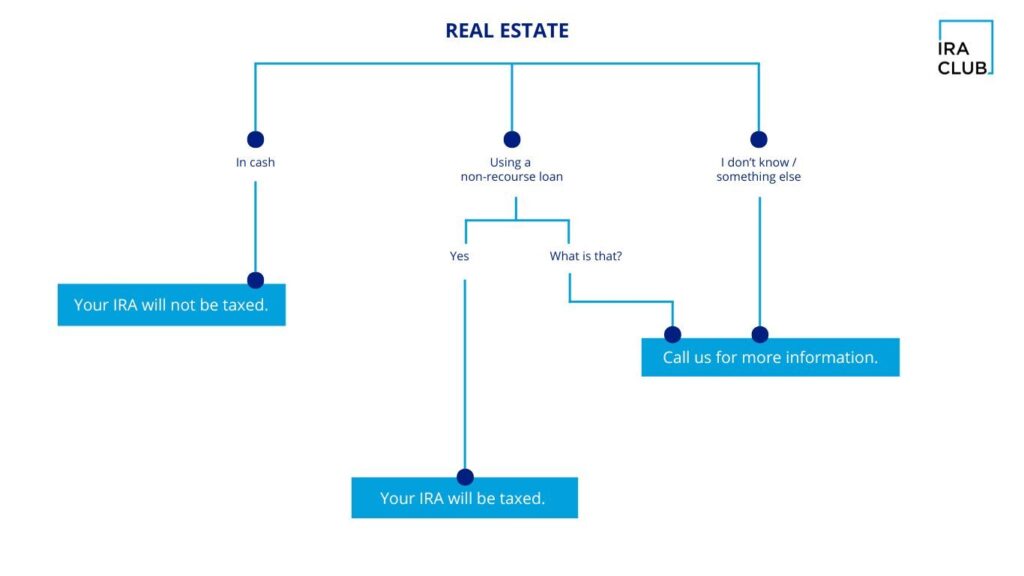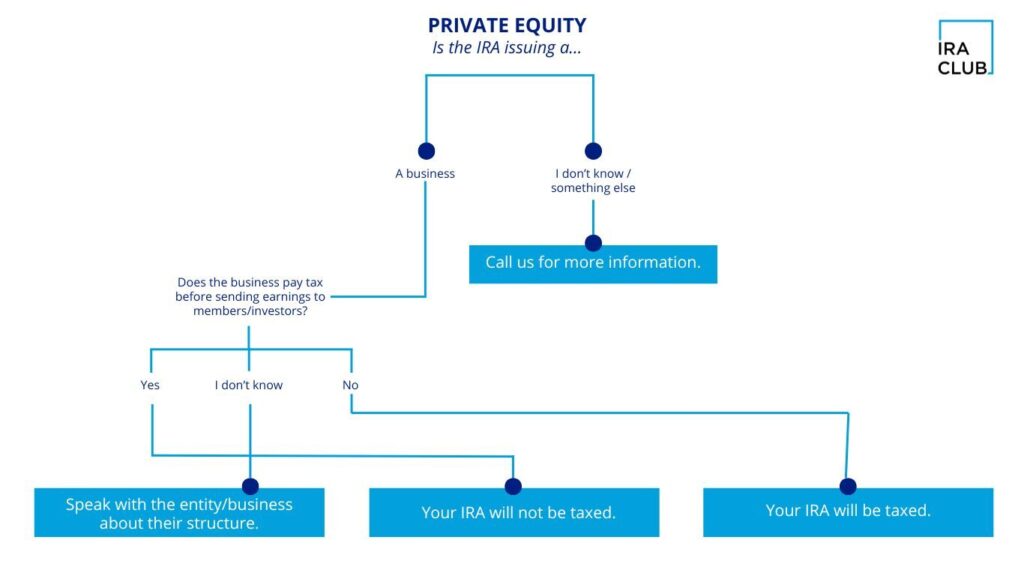
Invest in Real Estate with Non-Recourse Financing
A non-recourse loan for IRA real estate means the IRA itself is the borrower. The account holder isn’t personally liable for repaying the loan.
The loan is made to the IRA, secured by the property, and the lender’s recourse is limited to the IRA’s assets.
Why does an IRA need a non-recourse loan?
Your IRA needs a non-recourse loan because your IRA is an entity, not a person, and cannot personally make a guarantee that the loan will be paid off. Even as the IRA account holder, you cannot guarantee any loan your IRA takes when purchasing investments like real estate because you, the account holder, are considered a disqualified person to your IRA in accordance with IRS Code IRC 4975 (c)(1)(B). A non-recourse loan is a strategy some investors use when their IRAs don’t have enough funds to purchase an investment property on their own.
Benefits
- Obtain qualified non-recourse financing for investments your IRA wouldn’t have normally been able to obtain.
- Potentially grow your IRA and increase your returns.
- If your IRA defaults on the loan, the lender will only go after the debt-leveraged collateral, not the IRA or you, the account holder.
Drawbacks
- Higher interest rates for loans compared to traditional loans due to higher risk to the lender, as well as a larger down payment requirement.
- Limited lender options for non-recourse financing due.
- Non-recourse loans trigger UBIT from Unrelated Debt-Financed Income (UDFI) on the income generated from the debt-leveraged investment.
The Process For Securing an Investment with a Non-Recourse Loan

Open and Fund a Self-Directed IRA
To get started, open your SDIRA and fund the account with a contribution, a transfer from an existing IRA, rollover from a 401(k) or all three.

Find Your Investment
Find your investment by networking at local events or browsing through Investor’s Row. A self-directed IRA allows you to invest in a wide variety of alternative asset classes.

Your IRA Secures a Non-Recourse Loan
Find a lender that specializes in non-recourse loans. Be prepared to provide property details as well as have the IRA put down a larger down payment to secure the loan.

Closing on the Investment
Send over the documentation to IRA Club and complete any additional details needed to fund the investment. IRA Club will work with your lender and handle the closing on behalf of your SDIRA.

Managing the Investment
Your IRA secured the investment. The income received to the IRA will help pay down the loan and when all debt is settled, your IRA will own the investment full and clear.
Non-Recourse Lenders
Below is a list of lenders who may work with IRAs. They offer non-recourse loans that meet the IRS standards. IRA Club has no affiliation with any lender and earns no commission, fees, or other payments. You may contact these or other lenders when seeking leverage for your IRA project. Always complete your due diligence on any persons or companies before conducting business with your IRA.
| Name | Website | Phone Number |
| LoanBidz | Click Here | 417-605-2196 | First Western Federal | Click Here | 605-341-1203 |
| North American Savings Bank | Click Here | 855-211-3340 |
| Red Rock Capital | Click Here | 719-900-5400 |
| Peak Asset Lending | Click Here | 913-956-7325 |
For information about the Self-Directed IRA or Solo 401k please call IRA Club at 312-795-0988.
Choosing a Non-Recourse Lender:
Key Considerations
Here are some things to consider when working with a non-recourse lender:
- What are the terms? fees?
- What is the LTV?
- How is projected cashflow calculated for the property?
- How are defaults on loans handled?
- How much is the minimum down payment?


Unrelated Debt Finance Income (UDFI)
When utilizing a non-recourse loan, keep in mind that your IRA is subject to UDFI tax for the net income generated from the debt-leveraged amount on the property.
IRA Club does not offer investment, tax, financial, or legal advice, nor do we endorse any products, investments, or companies that provide such advice. All parties are strongly encouraged to perform due diligence and consult with the appropriate professionals licensed in that area before entering into any investment agreement or purchase. Performing due diligence helps protect against fraud.



